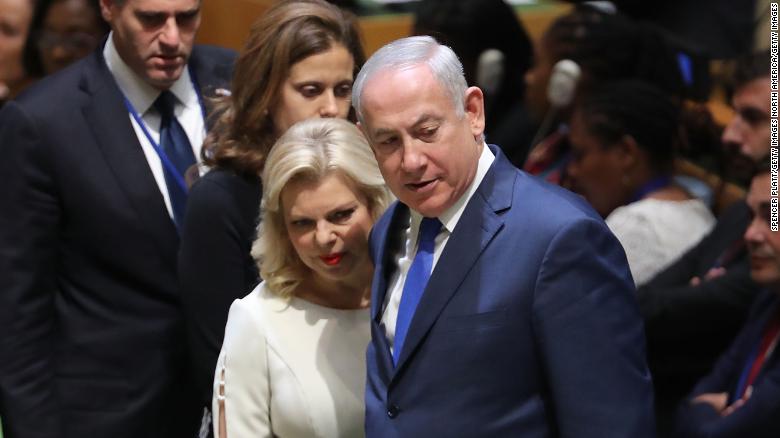When the idea of the creation of the Jewish state was discussed and voted upon at the UN back in 1947, there was surprise in certain camps that the UN passed the resolution that effectively created Israel. While there was clearly political motivation in the votes of some countries and financial motivation that drove others, there was almost certainly a sympathy factor that came into consideration. In the wake of the Shoah that saw the annihilation of 6 million Jews, the Jewish people at that time were considered helpless victims. Victims always seem to garner sympathy, no matter how it is that they became victims. So the Jews were viewed as the victims, and the world did show some short-lived sympathy at that time. Moreover, the world Jewish community was highly supportive of the Jews living in Israel. Not only did Jews around the world give their unwavering support to Israel, Israel also allowed Jews around the world to feel a little more pride in being Jewish.
Israel and the Jews living in Israel were determined to shake off their label as victims as soon as possible. The idea of being supported because of sympathy, rather being respected as equals, never sat comfortably with the Jewish culture. Instead of waiting for Arabs and anti-Semites to attack and then being forced to respond, there was a determination to build a nation of proud people who were not simply going to wait for the enemy to attack and risk further annihilation. Instead of a band of amateurs who relied upon the sympathy of others, Israel has built a professional army and built the country into one of the strongest and most respected. No more victims, no more sympathy votes. Now, a powerful army and a powerful country that could take on and beat the strongest. And with it, we have managed to escape the label of victims. We never wished to garner sympathy as victims. Instead, we wanted to plant fear in the hearts of those who dare to attack us. We have finally succeeded in this quest.
Unfortunately, the world seems to view situations in binary terms where conflicts are concerned. Either you are the victim, or you are the perpetrator and the bully. So, as we managed to escape the label of downtrodden victim, we have increasingly been painted as the bully. This is in spite of the situation remaining essentially unchanged in that the same Arabs and anti-Semites are still trying to wipe us out only because we are Jews. The fact that there would be no battle or conflict if they were prepared to live side-by-side in peace instead of trying to wipe us out, seems not to diminish our newly-acquired status as the bully. And, even though our military activities are solely designed to protect us to allow our people live in peace, this seems not to help to present the situation in its truest light. The real bullies are now considered to be the victims, even though they are the ones trying to drive the Jews into the sea. And the real victims are now painted as bullies, even though their only wish is to live in peace and build a positive future for their children.
In order to offer maximum protection to Israelis and to secure the future of the Jewish state, Israel has been forced to be proactive in preventing terrorist activities being perpetrated. Part of this involves sealing Gaza to prevent terror equipment from entering the area that presents a risk to the survival of Israel. At the time that Israel withdrew from Gaza, the intention was to allow Gazans to get along with building a positive future for themselves. Instead, Gaza has devoted its time to finding ways to destroy Israel. The Israeli government cannot simply stand by and watch this happen, hence the "blockade" that has been imposed on Gaza. Conveniently, the rhetoric has been twisted to reflect that Gaza justifiably launches attacks against Israel to protest against the blockade. Apparently, according to a view accepted in international circles, launching hundreds of missiles randomly into populated areas is entirely justified by the need to break free from the "blockade". The cart has truly been put before the horse.
Just as the world at large views the situation in a binary way, so our fellow Jews around the world are influenced to do the same. Now, instead of Jews hanging their heads for fear of being singled out and attacked for being Jews, they choose to hang their heads in shame at Israel for being labelled as a bully and transgressor of human rights. And they insist upon showing their shame in public places in order to be allowed to exercise their right to object to Israel and her policies. The irony is that this shame is really imposed upon us by outsiders who view Israel as the transgressor, and has been absorbed by Jews who wish to fit in comfortably to their local environments, Moreover, this view appears to have been adopted by many Jewish educational institutions around the world that have been blinded into accepting the contrary twisted rhetoric about Israel's position in the conflict.
I find it not only unfortunate that the story has been twisted to such a degree that the protagonists have switched roles, it hurts that diaspora Jews find it necessary to be so vocal and public in their criticism of Israel. While I do not expect that all Jews should blindly support Israel under any circumstances, I do hope that they will express their criticism in a manner that is constructive and useful. Just as in Israel where each person has more than one opinion on most subjects, I expect that diaspora Jews will also hold a variety of opinions of Israel, not all of them positive. This is entirely within the realms of what is acceptable. I don't accept, however, that "taking a knee" is constructive or useful. And I don't believe that flying a Palestinian flag is constructive or useful. Instead, it is important to promote the notion that Israel is fighting for its right to exist as a Jewish state, and to protect Jews around the world. Support for Israel's tactics to survive, wherever it may come from, is welcome.
It may come as a great surprise to many to hear that most Israelis strongly support the idea of a creation of a Palestinian state alongside Israel. And that most Israelis are very sensitive to the issue of acting humanely and the issue of human rights. Most Israelis wish to see Palestinians living constructive lives with a great deal of hope for the future. There is, however, a condition attached to the support for the Palestinians. The condition is that the Palestinian state will promote peaceful co-existence with Israel, and allow Israel to survive as a Jewish state along the border of the Palestinian state. Unfortunately, this condition has yet to be acknowledged and agreed upon. In the absence of this acknowledgement, it is understood that the objective is to destroy Israel and the Jews. Until this is agreed, Israel will continue to protect herself and the Jews. Inevitably, the international community will conveniently use this to promote their criticism of Israel as a violator of human rights. We should not be sucked into their point of view that is entirely without justification.
We cannot expect Israel's enemies and anti-Semites around the world to ensure that the rhetoric that they are promoting places the horse before the cart. Their agenda means that this does not serve their purpose. It would be welcome, however, if at least Jews around the world help to place the story in its correct order, without pandering to the views of those who wish to destroy us.




